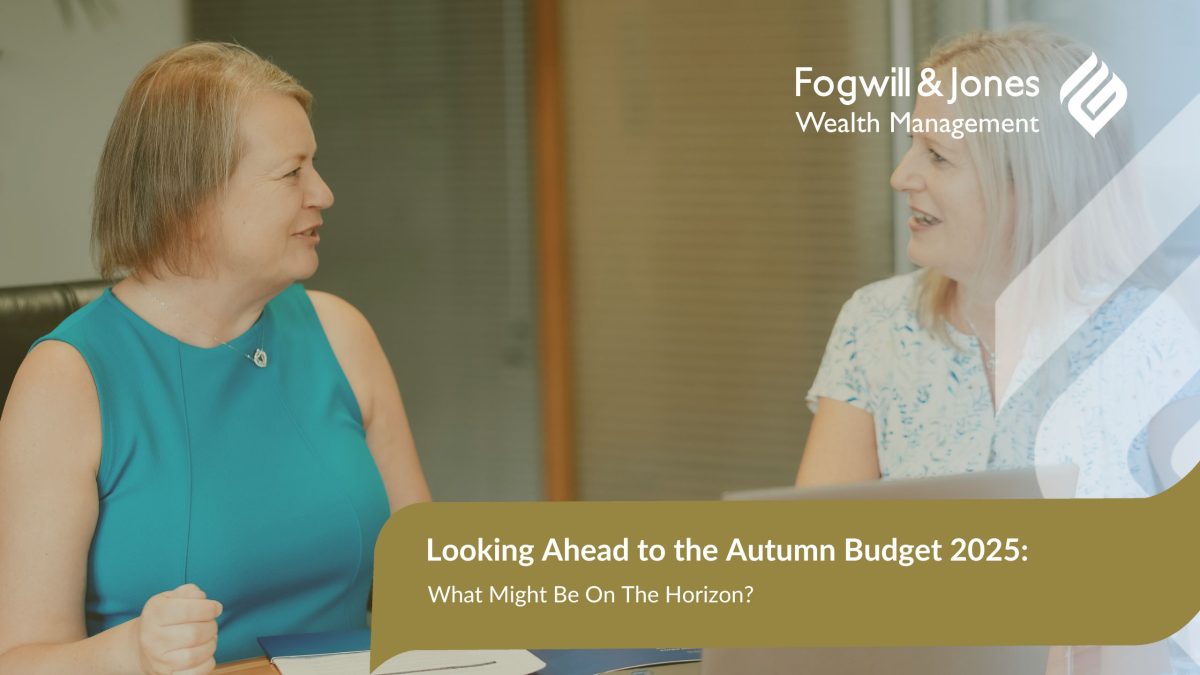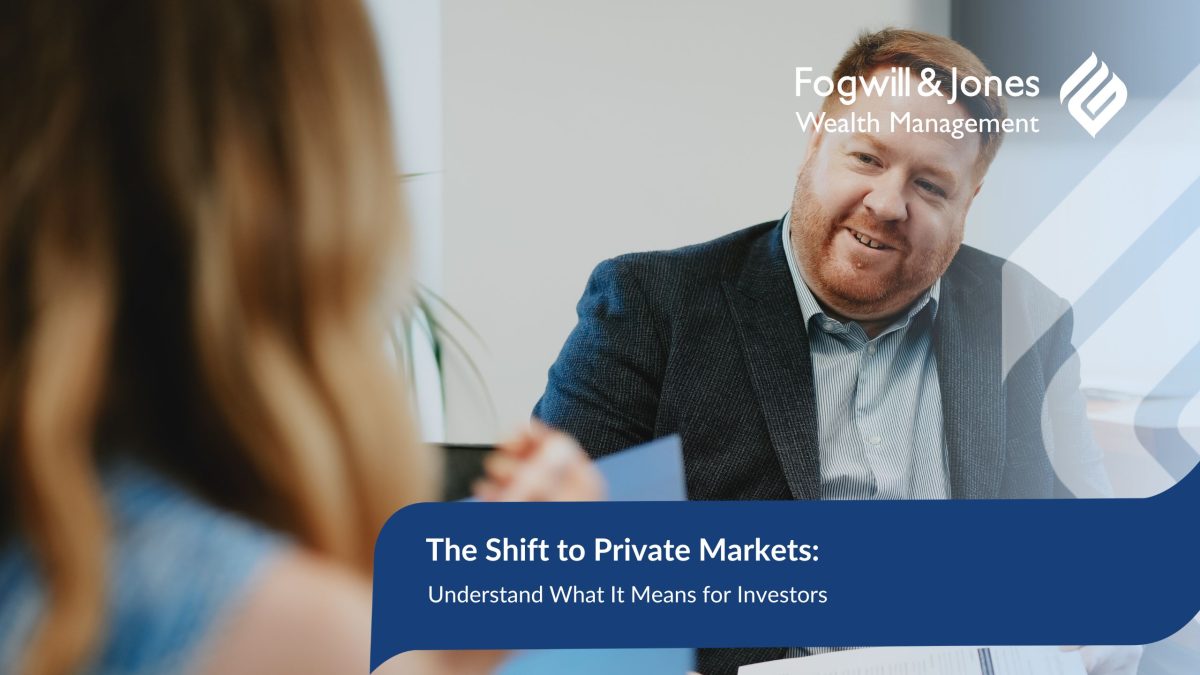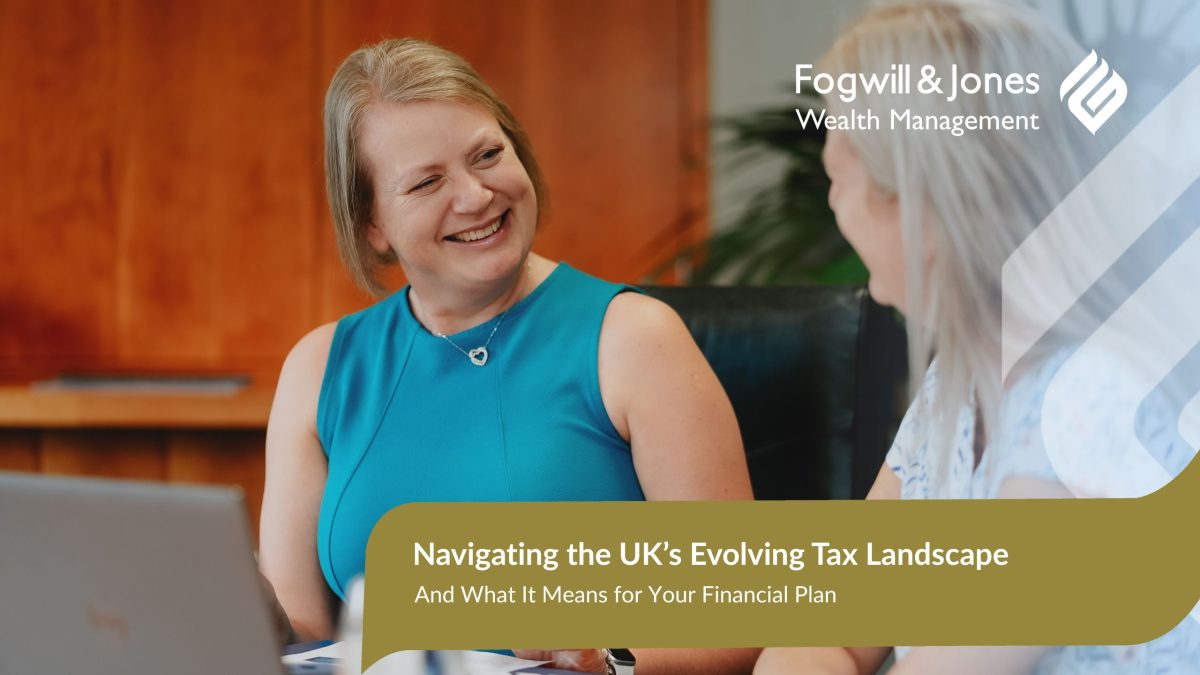The Chancellor is set to deliver the Autumn Budget on Wednesday 26 November 2025, and while the details remain under wraps for now, the broader economic and political backdrop gives us some indication of what might be on the table.
As always, this Budget is expected to serve two key purposes: a response to current economic challenges, and a statement of intent from the Government as it looks ahead to the coming year. This year’s announcements may also carry political weight, with potential measures designed to win favour with voters and reassure markets.
At Fogwill & Jones, we believe that understanding the lead-up to the Budget is just as important as the announcements themselves. The decisions made in November could impact everything from tax planning and retirement savings to business investment and estate succession strategies. Below, we offer a snapshot of the economic environment, a look back at recent policy changes, and a preview of what might be announced.
Economic Snapshot: Inflation, Interest Rates and Growth
Despite the Government’s ongoing efforts to bring inflation under control and stimulate economic growth, progress has been slow:
- Inflation remains above the Bank of England’s 2% target, though it has eased slightly compared to the peaks of 2023 and early 2024. Persistent inflation continues to place pressure on household budgets and affects real-term savings and investment returns.
- Interest rates have stayed higher for longer than many expected. While there have been calls to begin lowering the base rate to support economic activity, the Bank of England has remained cautious, wary of undermining progress on inflation.
- Economic growth has been subdued, with the UK economy narrowly avoiding recession earlier this year. Business investment, consumer confidence and productivity growth all remain below long-term averages.
This backdrop creates a tricky balancing act for the Chancellor: how to support growth and ease financial pressures without compromising fiscal discipline.
Key Areas to Watch in the Autumn Budget
While we can’t predict specifics, there are several areas where policy movement is possible – particularly in light of the Government’s wider strategic goals and the need to support key voter demographics.
Some areas to watch include:
- Taxation and Allowances
The Chancellor may look to adjust personal tax thresholds or offer targeted tax reliefs. While sweeping cuts are unlikely given fiscal constraints, we could see smaller, symbolic changes to:
• National Insurance Contributions (NICs)
• Income Tax thresholds (particularly for basic and higher-rate bands)
• Savings allowances, such as ISAs or dividend tax thresholds
- Support for Small Businesses
To encourage entrepreneurship and job creation, further measures aimed at supporting SMEs may be announced. This could include:
• Extensions or reforms to business rates relief
• Enhanced capital allowances
• Targeted grants or incentives for hiring and training
- Housing and First-Time Buyers
With home ownership a perennial political focus, the Budget may include initiatives to help first-time buyers, such as:
• Stamp Duty adjustments
• New savings schemes or tax incentives
•Further investment in affordable housing supply
- Pensions and Retirement Planning
Given the recent momentum around pensions reform, the Budget may include further detail on:
• The long-term framework for pensions tax relief
• Auto-enrolment thresholds and contribution levels
• The future of Lifetime ISAs and retirement savings incentives
A Quick Recap: Key Measures from the Recent Budgets
While we wait to see what’s new, it’s worth reflecting on several important measures announced in the Spring Budget 2025, which continue to shape financial planning strategies:
Pensions and Inheritance Tax (IHT)
One of the most significant changes in recent years was the formal abolition of the Lifetime Allowance (LTA) on pensions. While this was initially announced in 2023, it was confirmed and legislated in the 2024 Budget. This opens up greater opportunities for high earners and those approaching retirement, particularly in terms of estate planning and tax efficiency.
Additionally, new guidance clarified how pensions are treated for IHT purposes – reinforcing their value as a planning tool for passing on wealth.
Agricultural and Business Property Relief
For clients with farming or rural‑business interests, the Government has reaffirmed the role of Agricultural Property Relief (APR) and Business Property Relief (BPR) as key wealth‑preservation tools. That said, the Spring Statement 2025 confirmed that from 6 April 2026 the 100 % relief for qualifying assets will be limited to the first £1 million per person, and any excess will be subject to relief at 50 % (resulting in an effective IHT rate of 20 % on those assets)
Employer National Insurance Reductions
Employers benefitted from a modest reduction in NICs earlier this year. For small businesses, this offers a welcome saving and potential headroom to invest in staff or infrastructure.
Why It All Matters – and How We Can Help
The Autumn Budget may or may not deliver major headlines, but even smaller policy shifts can have a significant impact on your financial plans over time. Understanding what’s changing, and how to respond, is essential for protecting and growing your wealth in a fast-moving environment.
We’ll be publishing a clear, concise summary of the Autumn Budget shortly after the Chancellor speaks. Our goal is always to cut through the noise and highlight the areas that matter most to you – whether you’re planning for retirement, supporting your family, or managing a business.
In the meantime, if you have questions about any of the topics mentioned here, or if you’d like to review your financial strategy in advance of the Budget – our team of Advisers are more than happy to help.
Stay informed. Stay in control. And, as always, plan with confidence.










